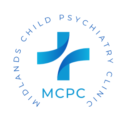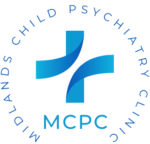- Awesome Services
Anorexia Nervosa
- Anorexia Nervosa
Explore How Can We Help You

Anorexia Nervosa
Anorexia nervosa is an eating disorder characterized by an intense fear of gaining weight, a distorted body image, and restrictive eating patterns leading to severe weight loss. This disorder can affect individuals of any age, but it is particularly prevalent among adolescents and young adults. Anorexia nervosa can have serious physical and psychological consequences, and early intervention is essential for a successful recovery. Here are key aspects to consider regarding anorexia nervosa in young people:
- Onset and Prevalence:
- Anorexia nervosa often begins during adolescence, with the majority of cases emerging between the ages of 15 and 19.
- Young people, especially females, are more susceptible to societal pressures and cultural ideals related to body image, contributing to the development of eating disorders.
- Behavioral Signs and Symptoms:
- Severe restriction of food intake, leading to significant weight loss.
- Intense fear of gaining weight or becoming "fat."
- Preoccupation with food, calories, dieting, and body size.
- Excessive exercising, even when underweight.
- Denial of the seriousness of low body weight or the impact on health.
- Physical Consequences:
- Extreme weight loss and malnutrition.
- Physical symptoms such as dizziness, fatigue, and weakness.
- Changes in skin, hair, and nails.
- Menstrual irregularities or loss of menstrual periods (amenorrhea) in females.
- Psychological and Emotional Impact:
- Distorted body image, with a persistent belief of being overweight despite being underweight.
- Anxiety and depression often coexist with anorexia nervosa.
- Social withdrawal, irritability, and difficulty concentrating.
- Perfectionism and a strong desire for control.
- Health Risks:
- Anorexia nervosa can lead to severe health complications, including cardiac issues, electrolyte imbalances, and compromised bone health.
- The risk of mortality is increased in individuals with anorexia nervosa, making early intervention critical.
- Treatment Approach:
- A multidisciplinary treatment approach involving medical, nutritional, and psychological components is essential.
- Medical stabilization to address immediate health risks, including refeeding and nutritional rehabilitation.
- Psychotherapy, such as cognitive-behavioral therapy (CBT) or family-based therapy (FBT), to address the psychological aspects of the disorder.
- Ongoing medical and nutritional monitoring to support sustained recovery.
- Family Involvement:
- Family support and involvement are crucial in the treatment of anorexia nervosa, especially for adolescents. Family-based therapy is an evidence-based approach that actively involves parents in the treatment process.
If you suspect that a young person is struggling with anorexia nervosa, it is essential to seek professional help promptly. Early intervention increases the likelihood of successful treatment outcomes. Mental health professionals, nutritionists, and healthcare providers can work together to develop a comprehensive treatment plan tailored to the individual's needs. Support from family and friends is also crucial for the recovery process.

